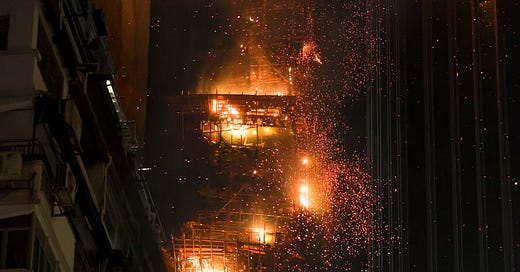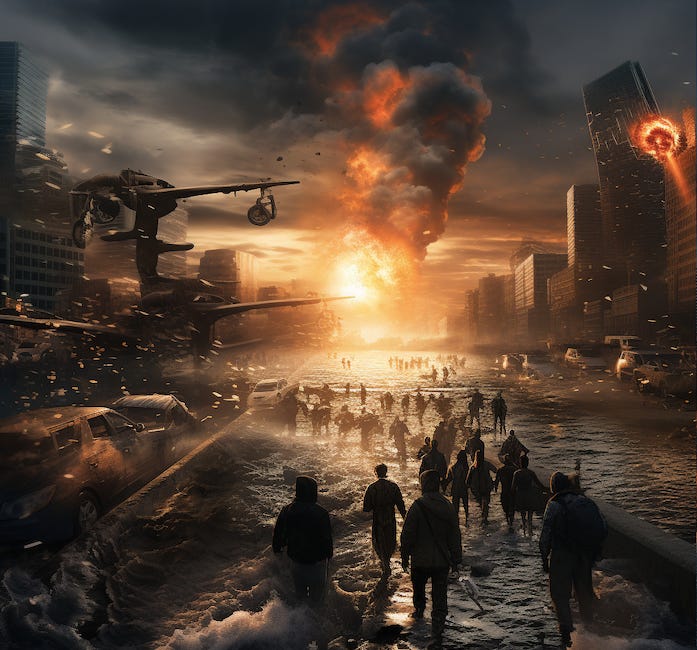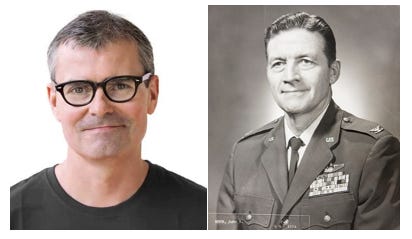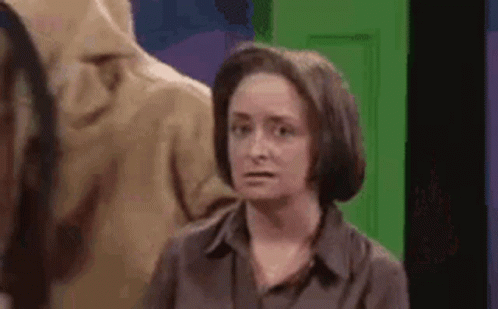Happy Easter, to those who celebrate this day.
Awhile back I did a primer on a few “big history” explainers about the 2020s. I reviewed four models—Ray Dalio’s Big Cycle, George Friedman’s Institutional and Socio-Economic Cycles, Strauss & Howe’s Generations Theory, and Peter Turchin’s Cliodynamics—to examine the decade from each of their perspectives.
I tried to be even-handed and avoid catastrophizing—to avoid falling into that human bias that the present moment is special because we’re here thinking and talking about it. After all, our parents, grandparents, and great grandparents lived through some crazy times themselves—pandemics, revolutions, world wars, and the dawn of the nuclear age.
One thing different about this decade is all the exponential technology—things like artificial intelligence, biotechnology, the rise of unmanned platforms, and other emerging fields like quantum computing. It’s hard for humans to wrap our heads around exponential growth. It’s just weird. Like the “lilly pads doubling in a pond” example.1 This technology will get faster, better, and cheaper as the decade progresses.
Here is a short video of Daniel Schmactenberger laying out his view of the situation (Note: Rivalrous dynamics is mostly just Dr. Seuss’s The Butter Battle Book, but instead of just Yooks and Zooks, you can add Looks, Mooks, Nooks, Pooks, etc.):
A recurring theme I am gathering from the work of thinkers I admire is the importance of looking at things through the lens of process and flow.
Even us.
Even a solid object, when we look at it at the quantum level, or a long enough time span. But we believe things are static, when we’re only looking at a brief snapshot. One way to view social, economic, and political systems is as protective scaffolding against an overwhelming and confusing reality. But like scaffolding, these systems are rigid—subject to aging and rust. They weaken and decay unless periodically renewed to match an ever-changing world.
Air Force Colonel John Boyd developed a framework for navigating a competitive environment, called The OODA Loop. I discuss this framework in an earlier essay, if you’re curious.
Coyne's Story Grid and Boyd's OODA
I love to synthesize. It’s one of my favorite things. I enjoy bringing together bits of wisdom across seemingly separate disciplines, seeing where they transcend contexts and domains. I like to read others who are synthetic thinkers (Jim Rutt, Daniel Schmachtenberger
Anyhoo, in this framework, orientation is the most important part of the cycle. It becomes reorientation as you do it over and over. Reorientation is a method for finding an optimal grip on the moment, to “read the room” and attune yourself to it. My friend Mark McGrath writes about it on The Whirl of ReOrientation Substack.
What seems to be happening in this decade is one big set of reorientations, in many domains, all at once. It’s a collective reassessment and renegotiation of old norms, values, and practices.
The Netflix documentary Breaking Boundaries: The Science of Our Planet, explores the concept of planetary boundaries—thresholds in Earth's systems that, if crossed, could lead to irreversible environmental changes. We are approaching or have passed critical points in ocean acidification, biodiversity loss, fertilizer runoff from industrial farming, CO2 levels, and deforestation.
The post-World War II order is cracking up. Deglobalization is on the horizon. It’s a multi-polar world now, with a bunch of players eyeing one another nervously across the table. Multi-polar systems are more unstable than the alternatives2, as anyone who has played the board game Diplomacy knows.
The political dogmas of the long twentieth century (1920-2024) are exhausted. In the United States, traditional conservatism is in retreat. The ideological excesses of the democratic party led to their defeat last year. From left and the right, in the U.S. and Europe, free speech is under assault. People are getting jailed for speech.
For the last half century the U.S. has been on a trajectory of individualism and disconnection. According to Robert Putnam, we should be due for an upswing. Depression and despair are hard to fight as an individual, without the guidance, experience, and perspective of community. Gen Z is not adopting the work mindset of their elders—for a variety of reasons, they seek a new relationship between employment and the rest of their lives.
Some are moving away from religion. Others are running towards it. Many have substituted politics for religion in MAGA and Wokeness. We’ve lost the rituals and rites for processing emotions—grief in mourning, joy in festivals, and initiating children into adulthood. These do exist in niche communities, but not at the collective level.
School used to be the sure path to knowledge and a successful career. Now, YouTube, podcasts, and other venues offer more agile and adaptable tools for learning and succeeding. Education is less about degrees and more about gaining pattern-matching faculties to surf the tsunami of content of the digital sphere.
Mitakuye Oyasin is a Lakota phrase meaning "all my relations.” It expresses the interconnectedness of humans, animals, plants, earth, sky, and spirit. All part of one sacred family. It serves as both a prayer and a worldview, guiding the Lakota to act with humility, respect, and responsibility toward all of life. It reminds them that to harm another is to harm themselves, and to honor another is to honor the whole.
A wildfire is here, figuratively and sometimes literally. It’s not well contained. We don’t think about being in history when we’re in the midst of it. Only with the benefit of time and introspection can we process and metabolize what we lived through.
So first—breathe. Wait a while. Find the time and silence to consider what comes up.
The scaffolding is failing; It’s been failing for awhile now, raining down in fiery chunks all around us. That’s scary, because we have to use a lot more work to figure out where we go and what we do.
But it’s also liberating, because we can think of better ways of being in the world. Ways more aligned with relationality and interconnection.
We can accept that this is what is unfolding for us in this moment. We can get post-tragic. We can use the lessons from the new(ish) field of complexity science, informed by the wisdom traditions of the past. We can act—organize politically if we don’t like the way things are going. Get involved in our communities—serving others is good for us as well, as my friend Kevin Stark points out. Finally, it means preparing ourselves to be resilient—our bodies, our minds, and our spirits, in the manner that calls to us. We need all-purpose humans—strong, thoughtful, and discerning.
And if we can do all that, we can reorient toward the world we want to create.
Currere Certamen Tuum/Run Your Race
Spoiler: The day before the pond is full of lilly pads, it’s only half covered.
Uni-polar or Bipolar.








Perfect perspective on this great unraveling, Adam! 👏
Here's a good quote about reorienting:
"I am certainly not an advocate for frequent and untried changes in laws and constitutions, but … laws and institutions must go hand in hand with the progress of the human mind. As that becomes more developed, more enlightened, as new discoveries are made, new truths disclosed, and manners and opinions change with the change of circumstances, institutions must advance also, and keep pace with the times. We might as well require a (person) to wear still the coat which fitted (them) when a (child), as civilized society to remain ever under the regimen of their barbarous ancestors. " — Thomas Jefferson
The Debbie downer gif put this article all the way over. Love your perspective and ability to converge knowledge across time and thinkers. Essential skill to help sort through the endless data we have access to.